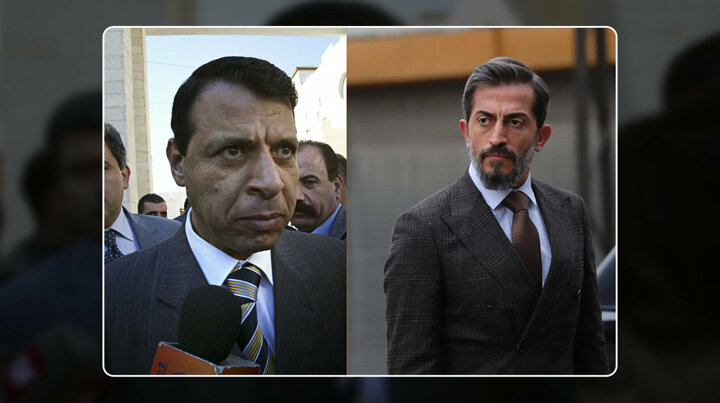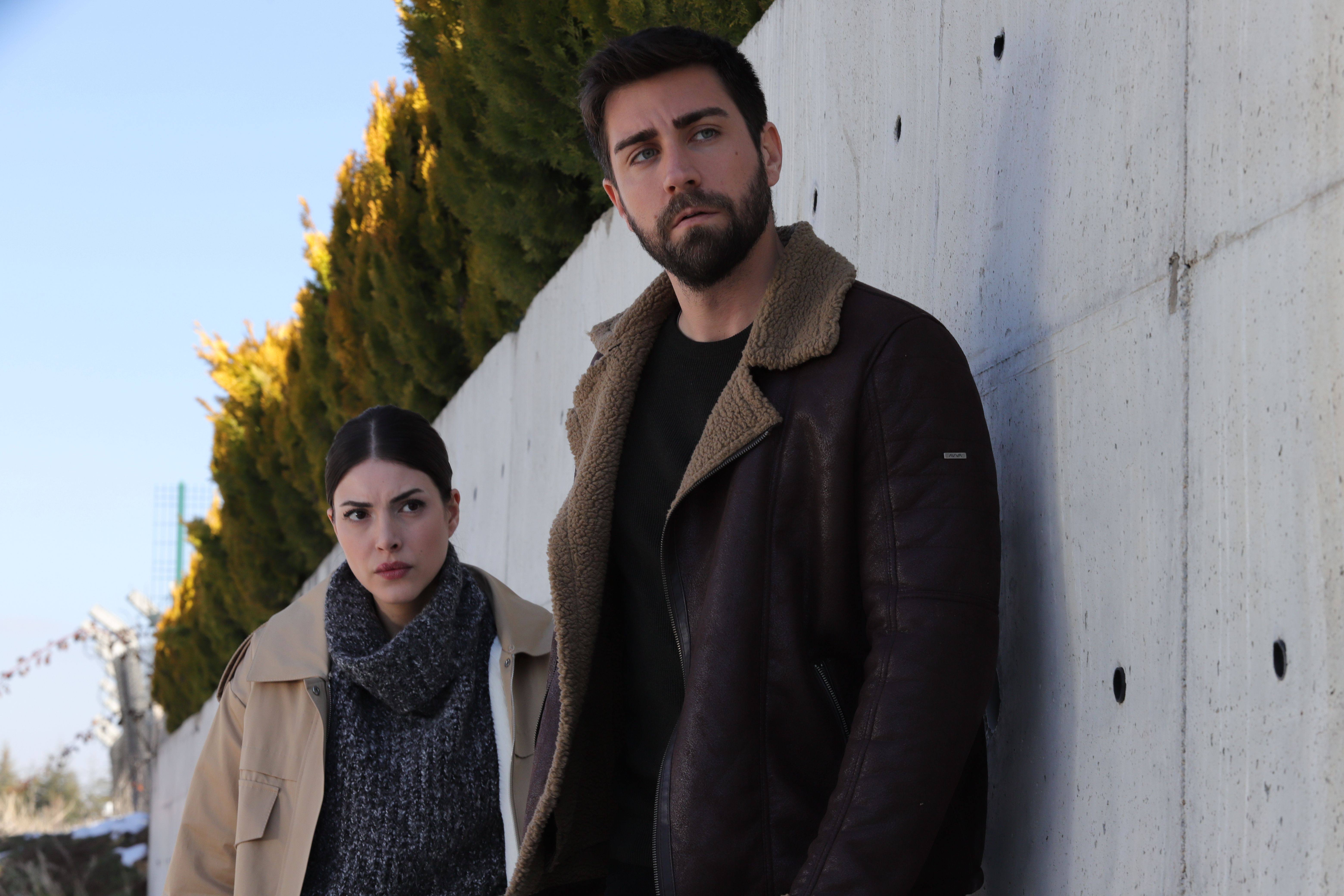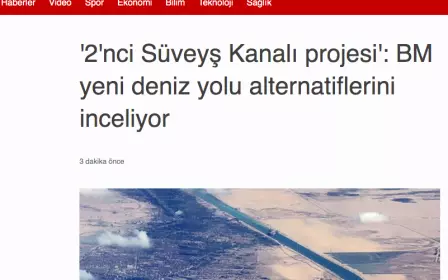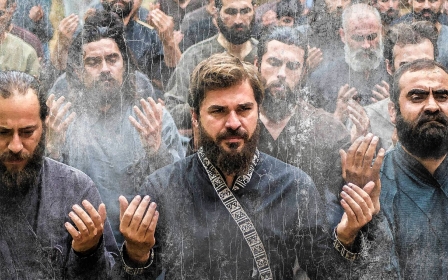Turkey's intel is after 'Dahlan' as chief villain in a new TV thriller
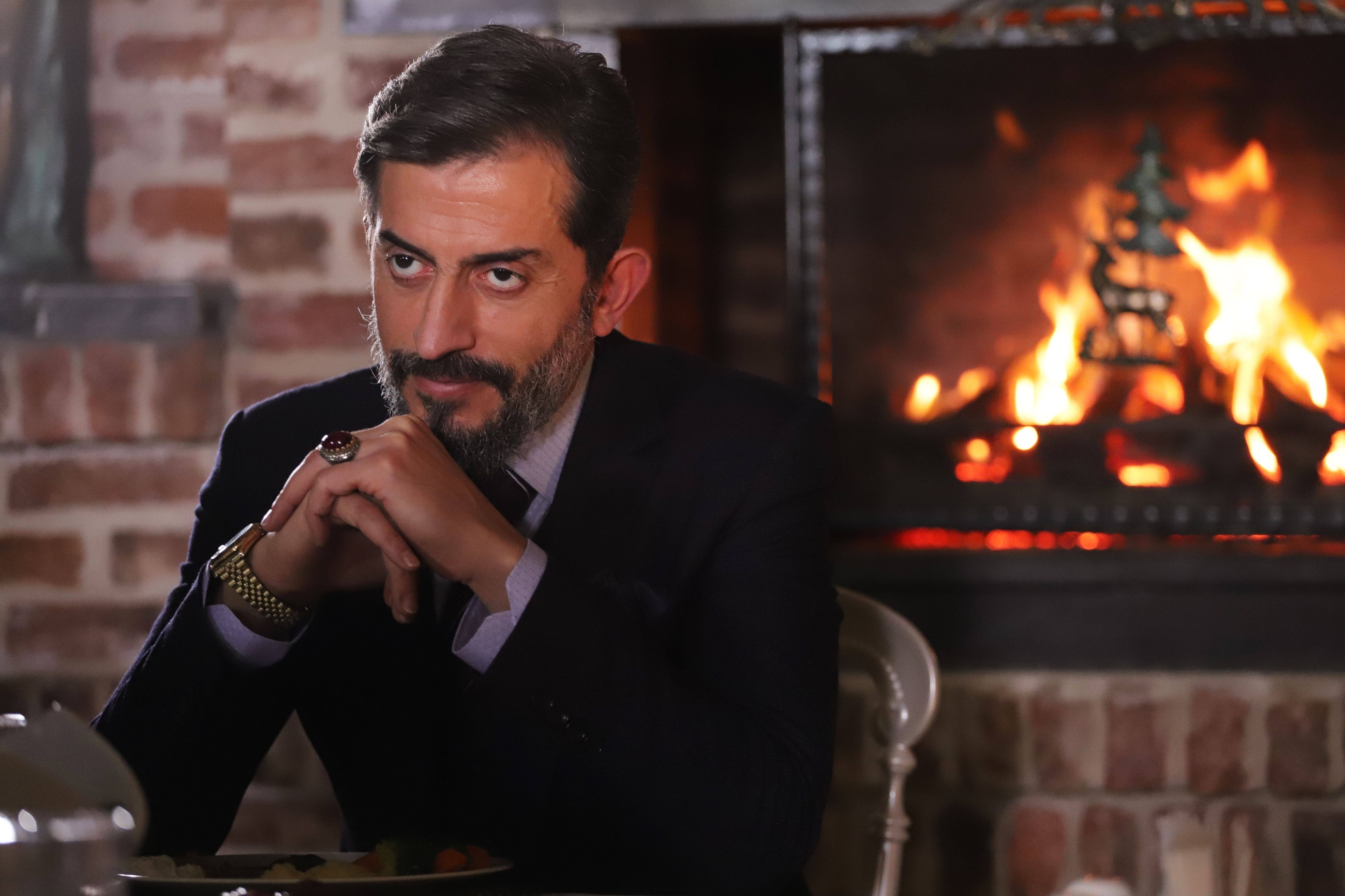
Turkish leaders have never hidden their dislike of exiled Palestinian Fatah leader Mohammed Dahlan. Foreign Minister Mevlut Cavusoglu called him “a terrorist ringleader” and the government formally added him to its most wanted terrorist list, offering $700,000 for information on his whereabouts.
Now public broadcaster TRT has gone a step further and cast a lead villain with a startling likeness of him in its blockbuster new TV series Teskilat (Organisation) on Turkish intelligence operations.
Teskilat is a unique series that has been the most popular show on television for the past five weeks. Never before has any show on Turkish TV delved into the intelligence operations this deeply. The story revolves around a group of secret agents who leave everything behind in their private lives to unearth a foreign conspiracy that also targets Ankara’s most guarded secret, the designs of its famed armed drones.
Then the viewers meet Zayed Fadi, a Palestinian leader who changed sides after intense torture at the hands of Israeli secret service. The Turkish script writers were not subtle about the character’s origins, starting with his name. Zayed was chosen in an apparent reference to Abu Dhabi Crown Prince Mohammed bin Zayed, who reportedly hired Dahlan as his fixer in the Middle East. Fadi, the last name, is a kunya, or traditional Palestinian name, in real life for Dahlan, who is known as Abu Fadi.
New MEE newsletter: Jerusalem Dispatch
Sign up to get the latest insights and analysis on Israel-Palestine, alongside Turkey Unpacked and other MEE newsletters
Scriptwriters, in an interview with Middle East Eye, did not deny that they have used Turkey’s regional rival, the United Arab Emirates, as an inspiration to create antagonists for the show.
UAE’s efforts to back PKK’s Syrian sister organisation is briefly insinuated in the first episode as lead Turkish protagonist Serdar, a Turkish James Bond in many ways, enters Syria to botch a terrorist attack. Zayed Fadi, meanwhile, serves a group called Company, that wants to eliminate Turkey as a regional power.
But the TV series offers more than an insight on Dahlan's activities, who was accused of playing a crucial role in a coup attempt in 2016 against the civilian government in Turkey. The series itself is a manifestation of how the Turkish National Intelligence Organisation (MIT), under its chief Hakan Fidan, has grown over the years from an agency that was mostly interested in domestic trivia or internal threats, such as Kurdish and Islamist militant groups, into a truly regional one.
New and improved image
A comparison with Valley of the Wolves, another espionage blockbuster that was broadcast in the early 2000s, illustrates how the Turkish spy drama has come of age. Valley of the Wolves featured a Turkish intelligence agent trying to infiltrate the Turkish mafia and take control of the crime underworld. It had no vision beyond the borders of Turkey.
However, in Teskilat, the audience encounters an intelligence agency, which is modern, gender equal and women-led.
A female supervisor, Zehra, who is also a single mother, leads a sophisticated and sensitive operation that involves drones and special forces in Syria to capture a terrorist leader. She takes down a racist man in Germany to protect a Muslim woman while on a mission. Another female agent prevents a handover of sensitive data belonging to the Turkish state in Paris.
Even though Teskilat has western villains, it is not necessarily anti-western.
Some intel officers in the series have a western education, one agent called Uzay brags about the fact that he holds a PhD on statistics from Yale University.
Even though there is a strong sense of nationalism, the operatives do not mention any ethnicities while undertaking their job: They only serve the state of Turkey.
The series features exclusive footage inside the new MIT campus in Ankara dubbed the Fortress; several scenes were also shot inside, suggesting that MIT provided some help.
Caglar Ertugrul, who plays Serdar in the series, told MEE that he had consulted some retired MIT operatives to prepare himself for the role. What also helped him in his adaption of the role was his training in some martial arts, such as Krav Maga.
“In the end, we just go along with the script,” he said. “We learned about the real stories from the retired intelligence officers. But they refused to share most of the details due to sensitivity. Those stories were real inspirations.”
Turkish James Bond
Director Yagiz Alp Alkaydin does not hide the fact that Teskilat was a way to produce Turkey’s own legendary James Bond.
“We also have secret heroes, who never get to publicly celebrate their own success. They devote their lives to [the service of the country],” he said. “This has really impressed me during the creation of the characters.”
Several regional countries have tended to underestimate the Turkish intelligence services in recent years. Saudi Arabia, for example, did not seriously consider that MIT could have bugged their Istanbul Consulate and tracked and revealed the Saudi assassination team’s every movement when they decided to murder journalist Jamal Khashoggi in 2018.
Last year, during the opening ceremony of MIT’s Istanbul building, Turkish President Recep Tayyip Erdogan described the agency as “vanguards” of the Turkish security forces that have operated in active theatres before everyone else.
In recent years, MIT agents played crucial roles in Syria, Iraq, Libya, Azerbaijan, and Ukraine, laying the groundwork in some of these countries before Turkish soldiers set food on the ground.
Polat Safi, a prominent Turkish academic specialising in the history of the Turkish intelligence, believes that a series of regional crises, such as terrorism, immigration and refugee issues, cyber attacks and proxy wars that engulfed Turkey in the last decade, also pushed MIT to transform and become a more capable institute.
“We could say that the organisation developed a serious speciality on back channel diplomacy during the hostage crisis and transfer of terror suspects to Turkey," he said.
"All of them increased the effectiveness of [MIT]’s diplomacy tools.
“Besides, in order to satisfy the needs for special operations and establishing and maintaining links with the groups helping Turkey in the region, the organisation had seriously needed to do a capacity and capability building.”
Erdogan boasted last year that MIT now has armed drones, sea vessels that gather intelligence, a satellite and a speciality in cyber operations and signal intelligence.
Still there are critics of the show, such as Akif Beki, a columnist for the conservative Karar daily, who described it as “outdated propaganda” last week because it was sending messages of cheap nationalism to the audience, pretending that the whole world was together against Turkey - a rhetoric used by the Erdogan government for many years.
Beki said this was no longer the case.
“Karar daily had a front-page headline three days ago on how [Turkey] was extending an olive branch to the world,” he wrote. “Presidential spokesperson Ibrahim Kalin said that they were ready to cooperate with Egypt and open a new page with the US and the EU.”
Indeed, Turkey has been recently trying to resolve its problems with regional countries, partly due to a new administration in the US, as well as its own reasons. Yet once again MIT has emerged as instrumental in dealing with Egypt, Saudi Arabia and the UAE to lead sensitive and secret talks to repair relations, indicating its now undeniable new crucial role in the Turkish state.
After all, as Zehra says in one episode, “We don’t have enemies, we have relations.”
Middle East Eye delivers independent and unrivalled coverage and analysis of the Middle East, North Africa and beyond. To learn more about republishing this content and the associated fees, please fill out this form. More about MEE can be found here.


